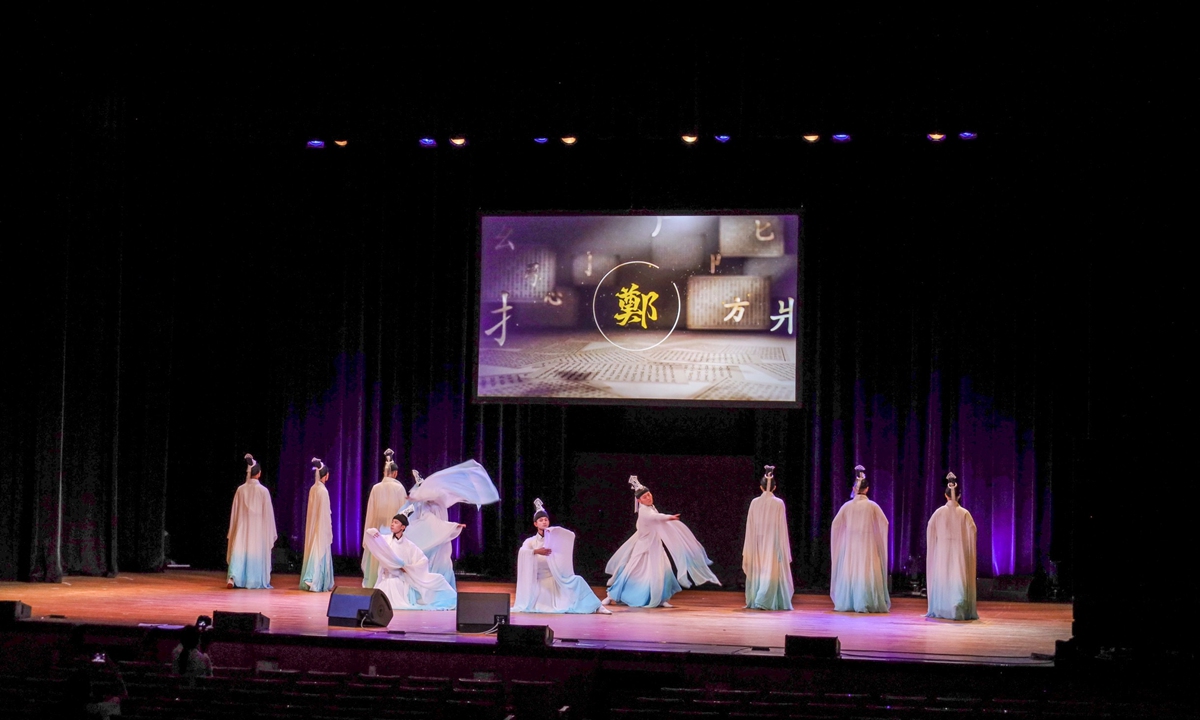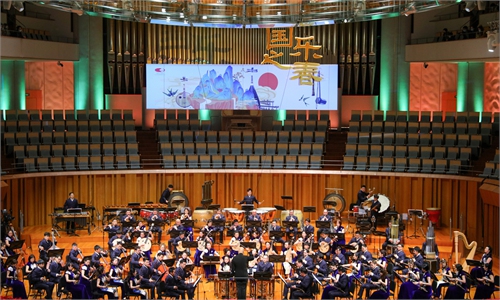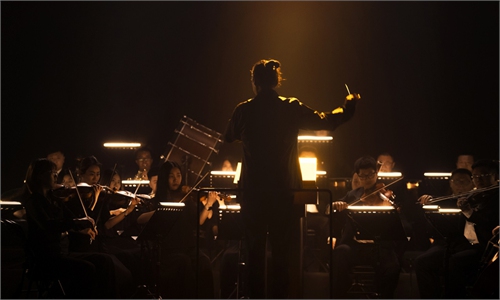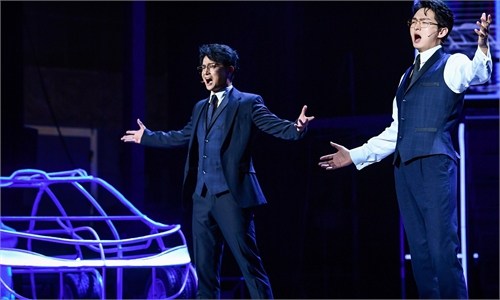ARTS / CULTURE & LEISURE
First large-scale Okinawa Chinese Music Festival fosters centuries of deep-rooted exchanges, friendship
Chinese ambassador to Japan says culture can bring peoples closer

Photo: Courtesy of the Okinawa Overseas Chinese Association
The 2023 Okinawa Chinese Music Festival, the first large-scale event of its kind, was held in Okinawa last week. The festival showcased a spectacular array of performances, including traditional Okinawan dances and Sichuan Opera face-changing, with the aim of reinforcing the enduring friendship and cultural exchanges between Okinawa and China that have spanned more than 600 years."Today's performances not only present traditional and contemporary Chinese art but also feature distinctive Ryukyuan dances and karate performances, which I believe will demonstrate the profound historical ties between Okinawa and China," Chinese Ambassador to Japan Wu Jianghao remarked when addressing the audience on Thursday.
"We look forward to using culture as a bridge to bring our peoples closer together and promote mutual understanding," Wu noted.
One of the standout moments of the festival was the performance of the Okinawan folk song "Flowers," performed by renowned Okinawan musician Shoukichi Kina and his band. The song's Chinese version became famous in China after it was covered in 1993 by singer Wakin Chau from the island of Taiwan.
"I incorporated Okinawan elements into the song and since our ancestors share a deep connection with China, I believe this is one reason why Chinese people can resonate with it," Kina told the Global Times.
Kina also expressed his admiration for Chinese musicians' proficiency in playing various instruments, praising their ability to master even the most challenging ones. Invited by Chinese musicians, Kina has visited China multiple times for performances, establishing lasting connections.
"In my music career, I can say that my interactions with China have been the most frequent," he said.
Okinawa, like China, was forced into the World War II, which made the people of Okinawa gain a more profound appreciation of peace. Participating in the Okinawa Chinese Music Festival has been very significant for him, as it showcased the enduring friendship between Okinawa and China in a unique way, said Kina.
The festival also brought back fond memories with the appearance of Yumiko Araki, known for her role on the 1979 Japanese TV series Volleyball Girl, which made a lasting impression on Chinese viewers.
At the festival, the Japanese actress performed the theme song of the TV series and joined hands with Chinese singer Xie Ming to sing the Japanese version of the Chinese pop song "When You Are Old."
The collaboration between 27-year-old Okinawa-Chinese pianist Lin Yujia, who moved to Okinawa from East China's Fujian Province at the age of 9, and young Japanese pianist Shinji Fujiwara in performing popular Chinese song "My Motherland" and other songs emphasized the history of musical exchanges between the two sides.
Lin graduated in 2021 with a master's degree in piano from the Okinawa Prefectural University of Arts and now teaches music at a local high school in Okinawa.
"I wish to build a bridge of friendship between China and Okinawa through music," Lin told the Global Times. She shared her warm memories of arriving in Okinawa without knowing Japanese as a child and how local residents warmly embraced her and helped her assimilate into the community.
"Using music to make friends, fostering friendship between China and Okinawa, and conveying the desire for peace make me incredibly proud," she said.
This year marks the 45th anniversary of the signing of the Treaty of Peace and Friendship between China and Japan, and also the 50th anniversary of the founding of the Okinawa Overseas Chinese Association of Japan.
This significant occasion led to the organization of the largest-ever Chinese music festival in Okinawa. With over 1,000 seats in the concert hall, tickets quickly sold out, with local residents and Chinese expatriates evenly represented among the attendees, he said.
"Music knows no borders," said Shibagun Agarie, president of the Okinawa Overseas Chinese Association. Agarie emphasized that the overwhelming demand for tickets and the enthusiastic response to the performances indicate the willingness of local residents to participate in the festival.
Long before the Okinawa Chinese Music Festival, musical exchanges between China and the Ryukyu Islands, of which the island of Okinawa is a part, were already under way.
Professor Wang Yaohua at Fujian Normal University, aged 81, has been researching traditional music exchanges between China and Ryukyu since the early 1960s.
According to Wang, musical exchanges between China and Ryukyu accompanied political, economic, and cultural exchanges. Chinese musical culture was transmitted to Ryukyu, primarily between 1372 and 1879, through official interactions.
Historical records show that ancient Chinese envoys to Ryukyu imparted musical skills, including the art and performance techniques of traditional Chinese instruments, such as guqin. Folk music that was widely known in China was transferred to Ryukyu, spreading from the Ryukyuan court or the upper classes to the general population, transforming into folk music.
Over the course of history, some music genres, melodies, or musical elements that were lost in China at certain periods have been preserved in specific locations or genres in Ryukyu. The music reflects the social, historical, and ideological aspects of China and Ryukyu's deep-rooted exchanges, Wang noted.



